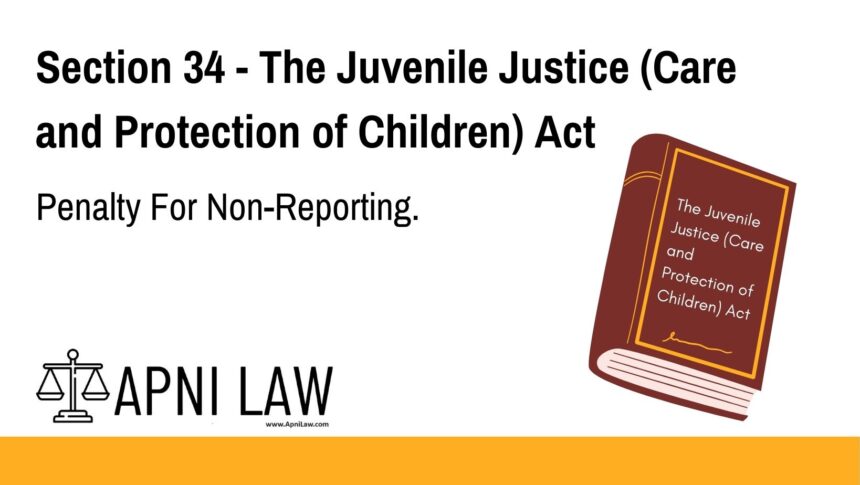Code
“Any person who has committed an offence under section 33 shall be liable to imprisonment up to six months or fine of ten thousand rupees or both.”
Explanation
Section 34 of the Juvenile Justice (Care and Protection of Children) Act, 2015 prescribes the penalty for failing to report a child in need of care and protection, as mandated under Section 33. The law places a legal obligation on any individual who becomes aware of such a child to inform the authorities. If this duty is neglected, the person is liable to criminal punishment.
The section promotes accountability and ensures that individuals and professionals—such as teachers, doctors, or neighbors—act promptly when a child is found to be in a vulnerable condition. The punishment for such a lapse is meant to deter negligence and reinforce the collective responsibility of society toward child welfare.
Key Points:
-
This provision applies to offences under Section 33 of the Act.
-
Punishment includes imprisonment up to 6 months or a fine up to ₹10,000 or both.
-
The aim is to ensure active participation of society in protecting children’s rights.
Illustration
Example 1: A school teacher notices signs of abuse on a student but fails to report it to the Child Welfare Committee or the police. This omission is a punishable offence under Section 34.
Example 2: A neighbor is aware that a child in the vicinity is being forced into child labor but does not report the incident. The neighbor can be penalized under Section 34.
Common Questions and Answers
Q1: Who is required to report under Section 33?
A: Any person who becomes aware of a child in need of care and protection—this includes neighbors, teachers, medical professionals, or bystanders.
Q2: What is the punishment under Section 34?
A: Imprisonment up to six months, or fine up to ₹10,000, or both.
Q3: Can a person be punished even if the child was not harmed?
A: Yes. The offence is the failure to report—not whether harm occurred. It’s about ensuring timely intervention.
Q4: What if the person was unaware that the situation required reporting?
A: The law expects reasonable awareness. However, the intent and circumstances will be examined during proceedings.
Q5: Can institutions also be held liable under this provision?
A: While Section 34 focuses on individuals, if an institution (e.g., school, hospital) fails to act, other legal provisions and liabilities may apply.
Conclusion
Section 34 of the Juvenile Justice Act emphasizes the duty of every citizen to actively safeguard children’s welfare. It penalizes inaction, aiming to create a legal environment where protection of minors is a shared societal responsibility.








